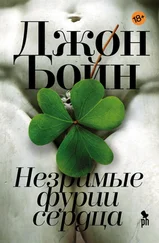‘To do?’ you said. ‘In what sense?’
‘Well, to fill your days,’ I replied. ‘Are you going to do some writing?’
‘What’s the point? Publishers aren’t exactly beating a path to my door, are they?’
‘You could start something new?’ I suggested.
‘Why would I do that?’
‘Because you’re a brilliant novelist,’ I said, and you looked at me with such a wounded expression that for a moment I thought you were going to stand up and walk out. ‘I’m sorry,’ I said. ‘I never know what to say when this subject comes up. I hate to hear you sounding so defeated.’
The truth was that I hated how unhappy you became whenever we discussed your stalled career and, although you would have grown angry had you known, I pitied you for it too. But more than anything, it just annoyed me. I wished you would simply accept that things hadn’t turned out as you’d hoped and work to improve them. For God’s sake, you were only thirty-four years old! Most writers are just starting their careers at that age! But things had come so easy to you at the start, hadn’t they? You were only twenty-four when you published your first novel and probably hadn’t been mature enough to cope with the success that Two Germans brought your way. And I think even you would agree that you rushed your second, The Treehouse , which is why it had been such a disaster. Your third book was turned down because it really wasn’t good enough and the three that followed were rejected because by then you were simply throwing ideas at the wall and hoping that one would stick. Which was when you said that you were done with writing for ever. That you’d only ever had one good idea and even that hadn’t been yours, it had been someone else’s story that you’d simply transcribed, receiving praise not for the quality of the book itself but for how you’d exposed a man with a treacherous past.
And yet when I read the books that followed, I could see why they had been met with failure or rejection, for they were utterly devoid of authenticity. And – the worst crime of all – they were boring. But then, you always said that you struggled when it came to thinking up good ideas, didn’t you? That if someone gave you a story, you could write it better than anyone else, but that you needed that basic idea to begin with.
‘You shouldn’t forget that you love writing,’ I said quietly, hoping that you wouldn’t overreact to my words.
‘I don’t,’ you replied, pouring another glass of wine for yourself but ignoring my glass, which was almost empty. ‘I hate it.’
‘That’s not true.’
‘I think I would know.’
‘You hate what writing has done to you, that’s all. How it’s let you down. But the craft itself, I know you still love it. I know you do. From the first day we met you were obsessed with the idea that the world should see you as a writer.’
‘What rubbish,’ you said.
‘I remember you even told me that you thought you might only publish four or five books in your lifetime so the world would take you more seriously.’
‘I never said anything of the sort,’ you said, shaking your head. ‘What kind of narcissistic knob would say something like that?’
‘I remember it distinctly,’ I said, refilling my own glass now. ‘I can even remember where we were when you said it.’
‘Honestly, Edith, if that’s how you see me, then I don’t know why you married me at all.’
‘Well, if you’re not going to write,’ I said, ignoring this remark, ‘then what are you going to do? You can’t just sit around the flat all day staring at the four walls.’
‘I’ll figure something out,’ you said. ‘Someone needs to do the shopping and the laundry and so on.’
A shadow fell across the table and I looked up to see a boy standing there. He was young, in his early twenties, with floppy blond hair. His skin was pale but his cheeks had a slight redness to them. If Eton College had a brochure, which they probably did, he could easily be the cover star.
‘I’m sorry to interrupt you,’ he said, looking from me to you and back to me again. ‘It’s Edith Camberley, isn’t it?’
‘Yes,’ I said, surprised that he knew who I was. I had never once been publicly recognized.
‘I’m sorry to interrupt you,’ he repeated, toying with a silver ring on the middle finger of his right hand. ‘My name’s Garrett Colby. I’m one of your students. Or I will be, anyway, from next week.’
‘Oh,’ I said, feeling strangely excited. ‘How nice to meet you!’
‘I saw you but wasn’t sure whether to come over or not. I’m sorry to interrupt you.’
‘You’ve said that three times now,’ you remarked, and I threw you a look but you deflected it with a smile, reaching for one of the mint chocolates that had come with the coffees and popping it into your mouth, masticating noisily.
‘It should be an interesting year ahead,’ I said.
‘I must admit I’m quite nervous,’ he replied.
‘What are you working on?’ I asked him. ‘A novel?’
‘Short stories,’ he said. ‘I’ve been writing stories since I was a boy.’
‘But you’re still a boy,’ you told him. ‘You look about twelve.’
‘I’m twenty-two,’ he replied.
‘You don’t even look like you shave.’
Poor Garrett blushed even deeper and I felt sorry for him. I tried to kick you under the table but succeeded only in banging my toe on the leg of your chair.
‘Just ignore him,’ I said. ‘My husband is being ridiculous.’
‘What kind of stories do you write?’ you asked.
‘They’re mostly about animals,’ he said.
‘Animals?’
‘Yes. I’ve been working on first-person stories narrated by… well, animals.’
‘What sort of animals?’ I asked.
‘There’s one narrated by a giraffe,’ he replied. ‘And another by a gorilla. I published one in Granta last year that was narrated by a pelican.’
‘Of course, strictly speaking, a pelican is a bird, not an animal,’ you said.
‘That’s true,’ said Garrett. ‘But I let birds in. Is there a collective noun for animals and birds?’
‘Banimals,’ you said. ‘Birdimals. Animirds.’
‘They sound fascinating,’ I said, although, to be honest, I thought it all sounded a little strange.
‘So, you’re a children’s writer?’ you asked, looking at the boy. ‘Or hoping to be?’
‘No,’ said Garrett, taking a step back, and I could see, for some reason, that he felt insulted by the remark. ‘No, they’re very definitely for adults.’
‘Then why don’t you write about people?’ you asked. ‘Actual human beings. Aren’t you interested in them?’
‘I am, yes, but it’s the relationship between people and animals that interests me most,’ he replied. ‘It’s hard to explain. You’d probably have to read one, to be honest.’
‘Fortunately, that will be my wife’s job,’ you said. ‘Not mine.’
Garrett looked a little upset now, as if he regretted having approached us in the first place, and glanced back towards his own table, where another young man was seated, staring over at us with an anxious expression on his face.
‘And who’s that?’ I asked, trying to lighten the mood. ‘Another student?’
‘Yes,’ he replied. ‘Well, no. I mean yes, he’s a student but not on the creative-writing course. He’s studying medicine.’
‘Veterinary medicine?’ you asked.
‘No, regular medicine. We met a few weeks ago. We both arrived in Norwich early to settle in. We’re in the same halls.’
‘Is he your boyfriend?’ you asked, and I stared at you, wondering why you were trying to embarrass him, but there didn’t seem to be anything unkind in the tone that you’d used.
Читать дальше
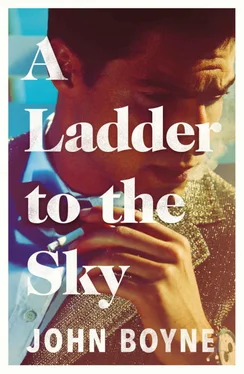
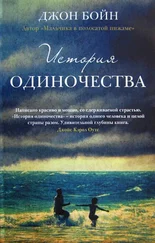
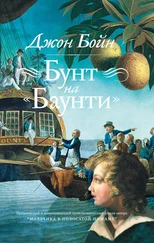
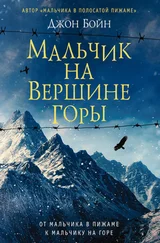
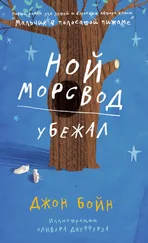
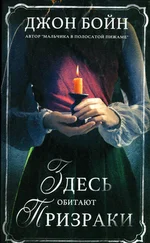
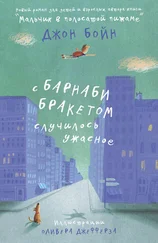
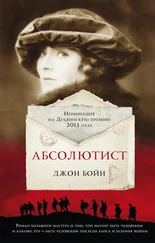
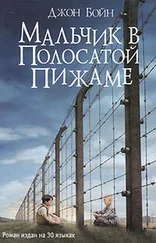
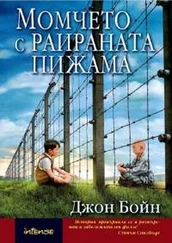

![Джон Бойн - Мальчик в полосатой пижаме [litres]](/books/420547/dzhon-bojn-malchik-v-polosatoj-pizhame-litres-thumb.webp)
